Online MBA in General Management
Step into Senior Leadership Roles with Cross-Functional Expertise
- Apply By: 03/06/26
- Start Class: 03/16/26
SMSU’s 100 percent online MBA in management program is built for professionals ready to lead with confidence. In as few as 12 months, you can complete this program and be equipped with the leadership, strategy, and communication skills needed to take on greater responsibility and drive organizational success. Whether you want to advance in your current role or pivot to a new field, you will gain a strong foundation in business principles and human behavior to thrive in a variety of industries.
Concentration Details
- Earn your degree while keeping up with your personal and professional priorities
- Study under instructors who offer real-world expertise and strong ties to the field
- Accredited by the International Accreditation Council for Business Education (IACBE) and the Higher Learning Commission (HLC)
Lead Across Diverse Business Functions
The online MBA in management curriculum blends core business knowledge with practical leadership development. Explore management as it applies to sales, HR, technology, and other key business functions. Gain insight into human behavior in organizations and sharpen your ability to lead teams, manage change, and solve problems. Courses are designed to prepare you for advancement across industries and business environments.
Online General Management MBA Required Courses
Select four of the following courses:
Successful business operations involve effectively securing resources, building strong partnerships, and seamlessly moving products from Point A to Point B. This course seeks to help students from all majors gain a deeper understanding of supply chain management. It focuses on integrating strategic planning and risk management to achieve competitive advantage. Students will examine real-world challenges and emerging trends to gain a comprehensive understanding of how to leverage sourcing and logistics strategies to drive organizational success. Through a mix of theory and practical insights, future leaders will be equipped to innovate and excel in the ever-evolving world of business operations.
The purpose of this course is to provide students with a broad understanding and knowledge of transportation concepts and critical issues affecting the flow of materials and people. The concepts will include (but are not limited to) freight movements, transportation policies, modal characteristics, 3rd party logistics (3PL), security, globalization, and sustainability aspects related to transportation. In addition, the course will focus on developing transportation models. Emphasis will be placed on the application of these concepts to actual business situations. Upon completion of this course, the student should be able to: Understand the role of transportation in a supply chain, Understand the regulations and public policies related to transportation logistics, Obtain knowledge about the pricing and costing for transportation, Understand the characteristics of various modes of transportation such as roadways, railroad, airlines, and water carriers, Learn about risks in transportation, global transportation planning and execution, 3PL, Understand the critical issues while developing transportation strategies, Develop optimization models to find efficient transportation in a supply chain.
In this course, students are exposed to experiences in the form of project-based learning within the broad areas of for profit, nonprofit, and philanthropic ventures. A feature of this course is its coordination with the Center of Innovation and Entrepreneurship and the Southwest Small Business Development Center (SBDC). Students will learn baseline skills or tools to assist in advising clients on a venture chosen by the class. The project approach to this course will culminate into a final report and presentation to the client.
This course examines the role of negotiations and mediation in conflict resolution. With the former, we consider theoretical knowledge and practical skills essential to being effective negotiators. With the latter, the course delves into the mediation process. In so doing, the role of the third-party neutral, or the mediator, is examined in its role in assisting disputing parties reach resolution. With both, the course overlays law topics that are relevant to managers in the legal environment. Such legal topics will require students to employ negotiation strategies to resolve conflict.
Provides an exposure to management decision paradigms that are most widely used in the business sector of the economy. The topics extend the range of decision tools beyond those used in other coursework in the program.
Organization development (OD) is concerned with planning, researching, and implementing interventions aimed at organizational change and renewal. The course focuses on understanding and developing process consulting skills. The course will also engage in in-depth exploration of various intervention strategies, including human process, technostructural, systemwide, and strategic change.
Focuses on the role of technology in organizations. A top-down approach is used which will range from considering technology as a strategic variable for competitive advantage to applying technology as a means of improving operational efficiency and customer service. The course considers the challenges of innovation as well as the potential conflicts and resistance resulting from technological change.
This course will provide a general management perspective of current and emerging issues facing organizations. Students will be required to address and analyze the many dilemmas and problems managers encounter in fashioning short-and long-term solutions and in taking action. The focus of the seminar will be Management of the Future.
The marketing concept has always focused on meeting the customers needs. Those needs, in order to be properly fulfilled, must be predicted on an unbiased understanding of the consumers attitudes and perceptions. To develop that unbiased method of sampling the target population in a manner that will be reassuring as being valid, correct research principles must be implemented. This course will offer actual hands-on experience in developing an understanding of research principles. Specific organizations will be targeted and research projects will be completed in their behalf as part of the course offering. The critical issues of ethical procedures coupled with sound statistical processes will be included in the course content.
SMSU’s online MBA includes 36 credit hours, and you can complete the program in as little as one year with accelerated course options. The core curriculum explores essential business topics like strategic management, international business, operations, and more.
Curriculum DetailsStep into Management Across a Wide Range of Industries
An online MBA in management from SMSU prepares you to lead teams, manage change, and drive results across industries. With General and Operations Manager roles in Minnesota projected to grow by 6.8 percent from 2022 to 2032,1 now is the time to strengthen your leadership skills. This program helps position you for advancement into high-impact roles with broad responsibility and long-term career growth.
Chief Executive Officer $206,420 per year2
Operations Manager $129,330 per year3
Explore More MBA Concentrations
SMSU offers a wide array of online MBA concentrations to match diverse career ambitions. Each concentration integrates current industry practices and real-world learning to build specialized expertise and practical leadership skills. Whether your goal is to drive innovation, lead global teams, or steer operations in dynamic sectors, SMSU’s online MBA programs are tailored to help you excel.
Sources
- Minnesota Employment and Economic Development. “Employment Outlook Projections.” Retrieved July 25, 2025, from https://mn.gov/deed/data/data-tools/employment-outlook/.
- Bureau of Labor Statistics, U.S. Department of Labor. “Chief Executive Officer.” Retrieved July 25, 2025, from https://www.bls.gov/ooh/management/top-executives.htm.
- Bureau of Labor Statistics, U.S. Department of Labor. “Occupational Employment and Wages, May 2023.” Retrieved July 25, 2025, from https://www.bls.gov/oes/2023/may/oes111021.htm.

